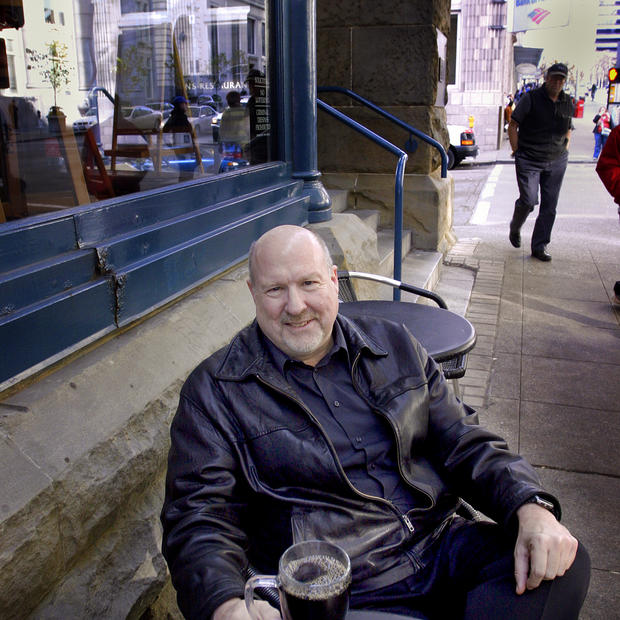In the mid-1990’s a French company by the name J.C. Decaux lobbied the City of Seattle for a contract to provide self-sanitizing public toilets. The company also proposed bus shelters, kiosks and benches in return for the right to sell advertising on the sides of those same bus shelters, restrooms and kiosks.
Decaux has used this business model for decades throughout Europe — providing items to a city for free, maintenance included — because the resulting advertising provides an ample income stream. Anyone who has traveled in Europe has seen, or perhaps even used one of the company's coin-operated toilets on a street, or in a park or public square.
Seattle roundly rejected the proposal and sent the French folks packing. The city had just finished a huge battle over billboards and the City Attorney did not want to raise the specter of advertising on public property. Ultimately, San Francisco accepted Decaux's offer, and a few other U.S. cities followed suit years later.
Flash forward to 2001 when Seattle attempted to provide public toilets on its own. Without the advertising. The city bought five sleek models from another European company and placed them In various locations around town. Without the revenue-generating part of the equation, however, they were too costly to maintain, secure and repair. Within a few years, the City sold the beaten up, vandalized toilets for pennies on the dollar. The failed experiment left such a bitter aftertaste that no one dared propose anything like it again.
Until now.
This week, the City Council is considering a proposal from Urban Visions, a local development company, to purchase a public restroom in exchange for permission to build a taller building on the east side of Occidental Square. The idea, which the Pioneer Square community actually suggested to Urban Visions, is that the restroom is a public benefit. The restroom will be installed on Yesler, just east of First Avenue; the City will widen the sidewalk to accommodate it. Obviously, First and Yesler is blocks from the development site. In other words, the developer proposed a public benefit, not on the property for which bonus floor space is being granted, but elsewhere.
So just what is this public toilet?
Several years ago, the City of Portland decided to install public toilets on its streets and looked at all the firms that manufactured them. City officials concluded that none of the available models was simple enough, cheap enough or sufficiently resistant to vandalism or misuse. So it designed and fabricated its own. Then it installed seven in different spots around the city and evaluated how they were used and how they held up over time.
 The “Portland Loo” as it is called, (that's a view of its, um, spare interior at left) is a step up from the very much older “pissoirs” of Paris, only a scant few of which are left today. Essentially, it's a simple metal enclosure with louvered openings at shin and head height. This design prevents people from using the bathrooms for drug deals or prostitution as you can clearly count how many heads or feet are inside. The faucet for washing hands is on the outside, so there is no interior sink which someone can commandeer for washing clothes or taking a bath. The door can be closed and locked, unlike the old semi-open Paris pissoir. But like them, Portland loos are free — and successful. So successful, in fact, that Portland is now marketing the toilet to other cities, like Seattle.
The “Portland Loo” as it is called, (that's a view of its, um, spare interior at left) is a step up from the very much older “pissoirs” of Paris, only a scant few of which are left today. Essentially, it's a simple metal enclosure with louvered openings at shin and head height. This design prevents people from using the bathrooms for drug deals or prostitution as you can clearly count how many heads or feet are inside. The faucet for washing hands is on the outside, so there is no interior sink which someone can commandeer for washing clothes or taking a bath. The door can be closed and locked, unlike the old semi-open Paris pissoir. But like them, Portland loos are free — and successful. So successful, in fact, that Portland is now marketing the toilet to other cities, like Seattle.
A proverbial win/win? Maybe. Maybe not.
Some community activists and city council members argue that developer Urban Visions is getting a lot (of income from the additional lease-able floor space) for comparatively little in the way of give back. The cost of the structure and its installation is upwards of $250,000. But the company would not maintain the toilet; that would be done by Pioneer Square Business Improvement District — at a cost of roughly $30,000 a year, according to Leslie Smith, Executive Director of the Pioneer Square Alliance, which supports the proposal.
Seattle City Council member Sally Clark (below) is concerned about granting a development project such a bonus for what is not all that much in terms of quid pro quo. She suggests that considerably more is needed in exchange for those extra floors. No one seems to be opposing the actual restroom. Rather, its a question of what's a fair trade. (This observer finds $250,000 a tad light. How about Urban Visions making a contribution to the maintenance cost?)

If you are interested in seeing what Seattle might be getting in the way of a new public restroom, you can check out the Portland Loo for yourself. The site's logo (above) is a humorous play on the international restroom signs. Those familiar white figures, legs tightly clasped.
Given Seattle's public approval process, we might be striking that same pose for a while, as we await the arrival of a new loo.
Photo of the Portland Loo interior courtesy of Portland's Bureau of Environmental Services.


